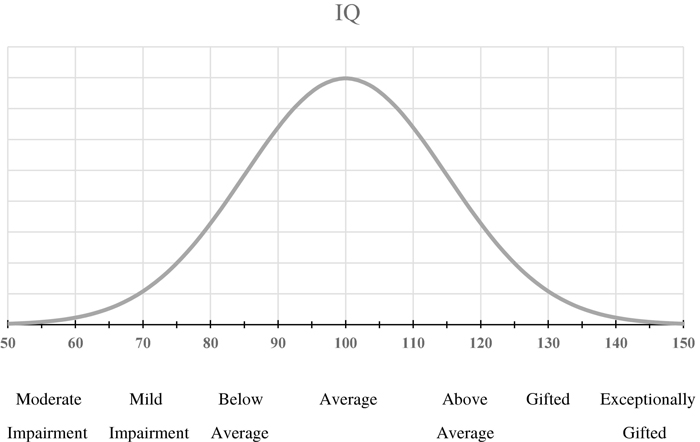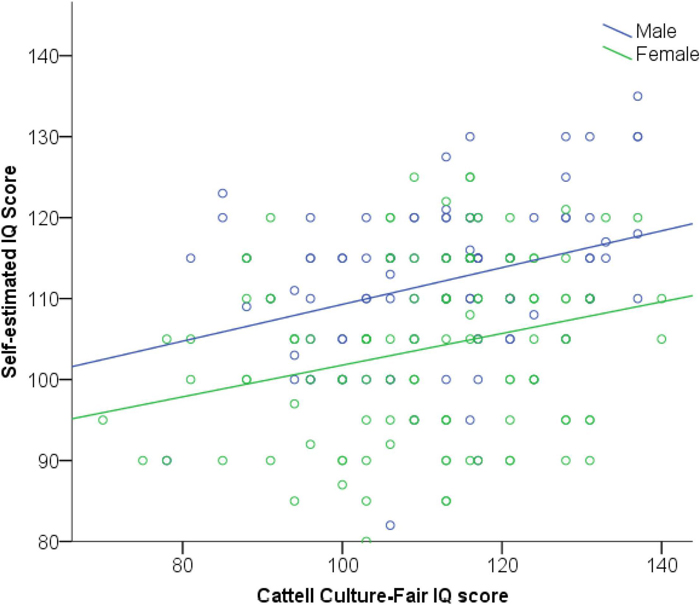Dear men, you seriously aren’t as smart as you think you are. Sincerely, science
Thinking highly of yourself is not a crime and neither is the secret feeling that you’re smarter than the average Joe. Believe it or not, this phenomenon is called the “above average effect” and it’s probably a huge reason why mansplaining exists. Everyone loves a bit of cognitive bias and even a dash of dissonance, since smartness is a socially desirable trait—along with honesty and driving skills.
However, a new study published in the peer-reviewed academic journal Frontiers in Psychology, suggests that men consistently overestimate their own intelligence. Time to knock some boys down a peg, or two, or three.
Ah, at last, the inflated male ego is being questioned. About time. The record now shows that their self-estimates are actually way off. Exploring the depths of male hubris, the study was conducted by Australian researchers David Reilly and David Neumann from Griffith University—along with Glenda Andrews from the University of Queensland. The study observed differences in self-estimated intelligence and, on the flip side, also covered the ‘female humility problem’, which was coined by renowned psychologist Adrian Furnham.
Participants were asked to rate their IQ after being briefed on how intelligence is scored. The average score is 100 points. Researchers also provided the participants with data that showed two-thirds (66 per cent) of people typically score within the range of 85 and 115 points as a frame of reference for their own estimates. Following their self-determined intelligence rating, they went on to complete a real-scoring IQ test to which their estimates would be compared. It was in these comparisons that false bragging and inflated ratings were noted.

Using what’s called the Bem Sex Role Inventory (BSRI)—a test that measures both masculine and feminine personality traits—researchers were able to find out a person’s “psychological gender” (masculinity measurement) to make the results stand regardless of sex assigned at birth. Participants then completed a measure of general self-esteem and the sample mean IQ score sat at 107.55 points, above average, as expected by the researchers.

They also found that the male scores (shown in blue) were more often overestimates (above the line), whereas the females scores (shown in green) were more often underestimates (below the line). So, people who act more masculine, regardless of their assigned sex at birth, tend to beef up their own self-estimated intelligence.
All I can think abt is that tiktok that explained how comedy requires the audience to trust that the person delivering the joke holds a level of intelligence and this explains why a lot of men fail to realise when women are joking 🙃 https://t.co/0wv95vIBQE
— ✮ (@cavehag) March 20, 2022
This is all despite the fact that “evidence from cognitive psychology [shows] that men and women are equal in measured intelligence, [with] gender differences in self-estimated intelligence,” the researchers explained in the journal. Just so that we’re all on the same page here, there are no gender differences in IQ. “Psychology and intelligence researchers are unequivocal: men and women do not differ in actual IQ,” as put straight from the horse’s—well, David Reilly’s—mouth. He even went as far to clearly state that “there is no ‘smarter sex’,” at least not in terms of IQ.
However, take all of this with the slightest pinch of salt, because IQ tests have notoriously been questioned for both their accuracy and ethics. Simply put, they have a pretty shady past. While IQ tests have been around for more than a century, they were previously used as a marker for some heinous decisions like eugenics (the immoral and scientifically erroneous theory of “racial improvement”) in the 1900s, according to Business Insider.
Today, they are widely used to measure an individual’s mental capability and skill, and have uncovered that men and women are truly very different indeed. Even if the complete validity of IQ testing is still debatable, this research is “illuminating,” as Futurism puts it. Now we have an understanding of how smart people think they are.
Though different studies have gathered results all over the place to answer the question on the tip of everyone’s tongue: ‘Who’s really smarter?’, this is the first test of its kind to include “psychological gender” into the mix. Women, I’m afraid you can’t say ‘I told you so’ entirely on this one though—since those who score high in the masculinity measurement, using the BSRI test, don’t dodge the same self-aggrandising traits as men.
All in all, Futurism put it best, stating: “Society often teaches men to be wildly overconfident, even when that belief is absolutely misguided.” Sorely misguided, indeed.





